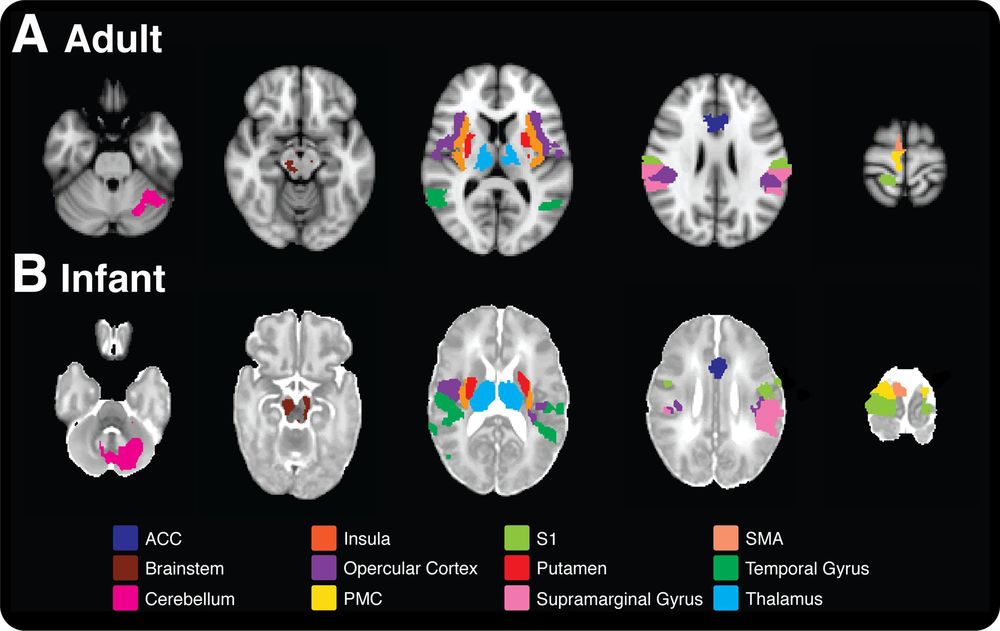20th August 2016
By Sayer Ji
Contributing writer for Wake Up World
A concerning new study suggests that decades of medical procedures performed on infants without pain management has had deeply traumatizing effects.
A groundbreaking study published in eLife, titled “fMRI reveals neural activity overlap between adult and infant pain”, demonstrates that the infant pain experience, despite long held assumptions to the contrary, closely resembles that of adults.
Researchers discovered that when 1-6 day old babies were exposed to the same pain stimulus as adults, their brains “lit up” in almost exactly the same manner. More specifically, infant and adult pain responses were indistinguishable in 18 of the 20 regions observed through fMRI imaging. The only two brain regions that pain did not show activation in the infants were the amygdala and the orbitofrontal cortex: two regions believed to help with the interpretation of pain stimuli.
In a a Time.com interview, the lead researcher of the study expressed some surprise at finding that pain activated centers in the infant brain associated with emotional processing. “The infant’s brain is much more developed than I was expecting,” says Slater. “I might have thought that some information might have gone to the sensory areas of the brain — telling the baby something was happening on the foot, for example — but I didn’t necessarily think it would go to areas more commonly involved in emotional processing such as the anterior cingular cortex, which is thought be involved in the unpleasantness associated with an experience.”
The Infant Pain Response: More Than a Reflex; Possibly a Source of Trauma
What is deeply concerning about this finding is that infants have long been considered by the conventional medical profession to be incapable of experiencing pain while undergoing the many routine medical procedures to which they are exposed in early life. In the case of the smallest and sickest of babies (who are required to be in a level 3 neonatal intensive unit for the first 14 days of their lives), a 2014 study found that they experience an average of 11.4 painful medical procedures a day, but with only 36.6% receiving pain management therapy. Also concerning is research that is now emerging, which exposes the fact that a surprisingly wide range of common medical procedures are not supported by the body of published biomedical research, nor human clinical trials.


Clearly, hospital born infants, and especially those requiring intensive care, are subject to an intense range of potentially painful and traumatic experiences that the standard of care does little to mitigate, primarily because it does not acknowledge them beyond their biomedical definition as bodies, ignoring that they are experientially and existentially situated persons with sentience and subjectivity. Additionally, with the increasing prevalence of obstetrician-assisted birth (C-sections), blood draws, and vaccinations, the experience of iatrogenic pain and trauma has become the norm and not the exception. Given the inevitability of infant medical interventions, pain management strategies could be considered a medico-ethical necessity. Moreover, precautions should be taken to minimize unnecessary medical procedures, i.e. overdiagnosis and overtreatment.
According to the study,
“Doctors long believed that infants do not feel pain the way that older children and adults do. Instead, they believed that the infants’ responses to discomfort were reflexes. Based on these beliefs, it was a routine practice to perform surgery on infants without suitable pain relief up until the late 1980s. Even now, infants may receive less than ideal pain relief. For example, a review found that although newborns in intensive care units undergo 11 painful procedures per day on average, more than half of the babies received no pain medications. Some guidelines continue to emphasize that for infants cuddling and feeding are more important sources of comfort than pain-relieving drugs.”
While not specifically mentioned in the study, the practice of male infant circumcision may constitute the most egregious example of a medically unnecessary procedure. It is arguably responsible for extensive psychological and emotional damage within the male psyche due to the unacknowledged pain and trauma it has exacted in the millions that have involuntarily undergone it without adequate pain management.
Indeed, male infant circumcision is one of the most commonly performed medical procedures and responsible for 1.108 million hospital stays in 2011. The United States has the highest circumcision rate in the world, with an estimated rate of 69-97%, followed by 70% in Australia, 48% in Canada, and 24% in the United Kingdom. This is all the more concerning considering that circumcision is one of the least medically justified interventions from the perspective of evidence-based medicine.
For more information, please read:
- Reality Check: 14 Myths About Male Circumcision You Most Likely Believe
- The Foreskin: Why Is It Such A Secret in North America?
Amazingly, it has only been less than two decades since the American Academic of Pediatrics recommended anesthesia be used during the procedure. This only happened after research emerged showing behavioral differences in infant and mother-infant behaviors between anesthetized and unanesthetized infants:
Before anesthesia was the standard of care, a trial comparing outcomes between anesthetized and unanesthetized infants undergoing circumcision noted a change in the infant’s behavior on postoperative day 1,[13] and additional studies have documented the negative impact that circumcision has on mother-child interactions.[14] and [15] Based on mounting evidence that infants who are circumcised have significant pain and stress responses, the AAP recommended in 1999 that if neonatal circumcision is performed, anesthesia should be used.[16] [Source]
Considering what has been revealed by the new study, we must ask: how many infants have had been deeply traumatized not only via partial dismemberment of an important component of their reproductive and eliminative anatomy, but through the pain and anxiety associated with such a medical ritual which lacks unequivocal clinical research support for safety, efficacy, and any of its purported health benefits?
We hope that research like this will raise a flag of extreme caution when it comes to the increasingly prevalent over-medicalization of our most vulnerable populations. In other words, the solution is not simply to increase conventional pain management strategies which have many unintended, adverse effects — even with seemingly more benign over-the-counter drugs like Tylenol, which was recently found to have psychotropic properties, such as a ‘flattening’ affect. The focus, therefore, should be on reducing overdiagnosis, overtreatment, and the uncritical implementation of a standard of care which errs on the side of aggressive and invasive procedures.
About the author:
Sayer Ji is the founder of GreenMedInfo.com – an open access, evidence-based resource supporting natural and integrative modalities. He is on the Board of Governors for the National Health Federation and Fearless Parent, a Steering Committee Member of the Global GMO Free Coalition (GGFC), a reviewer at the International Journal of Human Nutrition and Functional Medicine. Since 2003, Sayer has also served as a patient advocate and an educator and consultant for the natural health and wellness field.
For more, visit GreenMedInfo.com and Facebook/GreenMedInfo, or sign up for GreenMedInfo’s free e-Newsletter.
Recommended articles by Sayer Ji:
- Group Drumming Better Than Prozac, Study Suggests
- Traditional Food Puts Chemotherapy To Shame, New Study Reveals
- Better Than Chemo: Turmeric Kills Cancer Not Patients
- Mammography Is Harmful and Should Be Abandoned, Scientific Review Concludes
- Cinnamon May Be Superior to Ibuprofen for Menstrual Pain, Study Reveals
- “Killer Germs” Obliterated by Medicinal Smoke Smudging, Study Reveals
- 6 Evidence-Based Ways Drumming Heals Body, Mind and Soul
- Coconut Water: A New Alzheimer’s Disease Treatment?
- Turmeric’s ‘Smart Kill’ Properties Put Chemo & Radiation To Shame
- Tylenol Kills Emotions As Well As Pain, Study Reveals
- Research: Plants Cure Cancer, Not Chemicals
- Beet Juice Boosts Cognitive Function In One Dose
- 13 Evidence-Based Medicinal Properties of Coconut Oil
- 25 Cancer Stem-Cell Killing Foods That Are Smarter Than Chemo and Radiation
- Roundup Weed Killer (Glyphosate) Threatens Coral Reefs, Persists In Seawater
Source Article from http://wakeup-world.com/2016/08/20/infants-deeply-traumatized-by-common-medical-procedures-new-study-suggests/
Views: 0
 RSS Feed
RSS Feed

















 August 19th, 2016
August 19th, 2016  Awake Goy
Awake Goy 


 Posted in
Posted in 
















